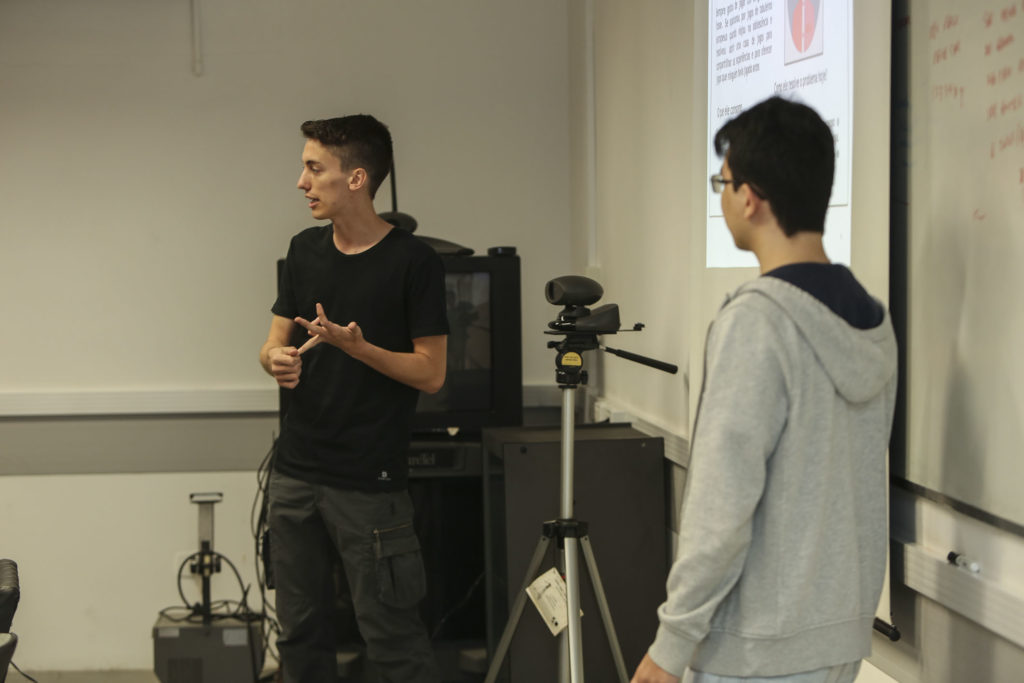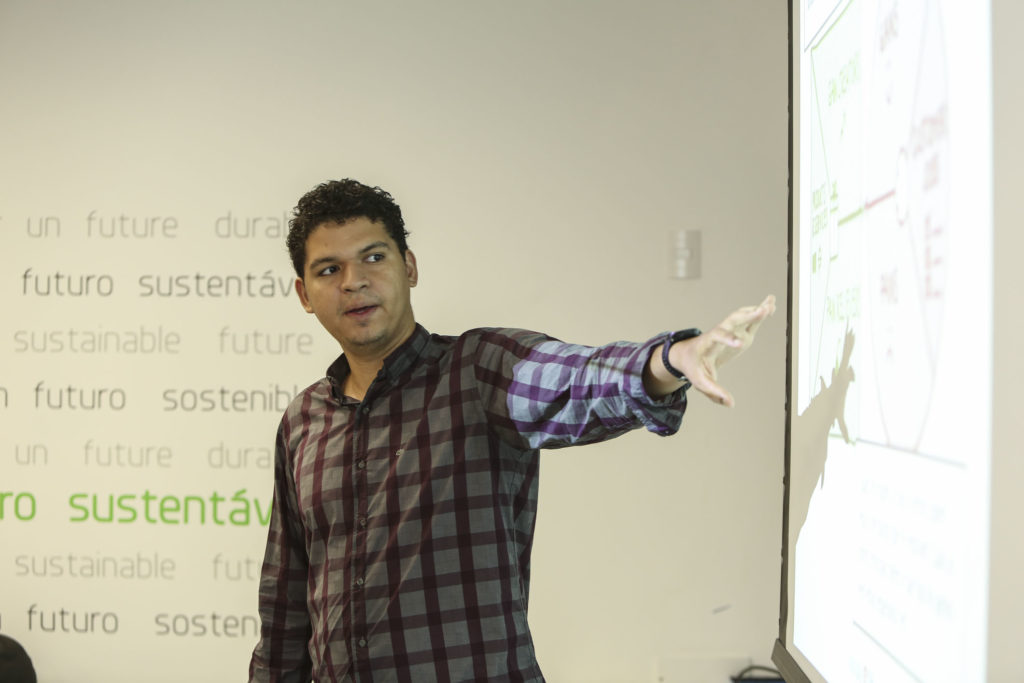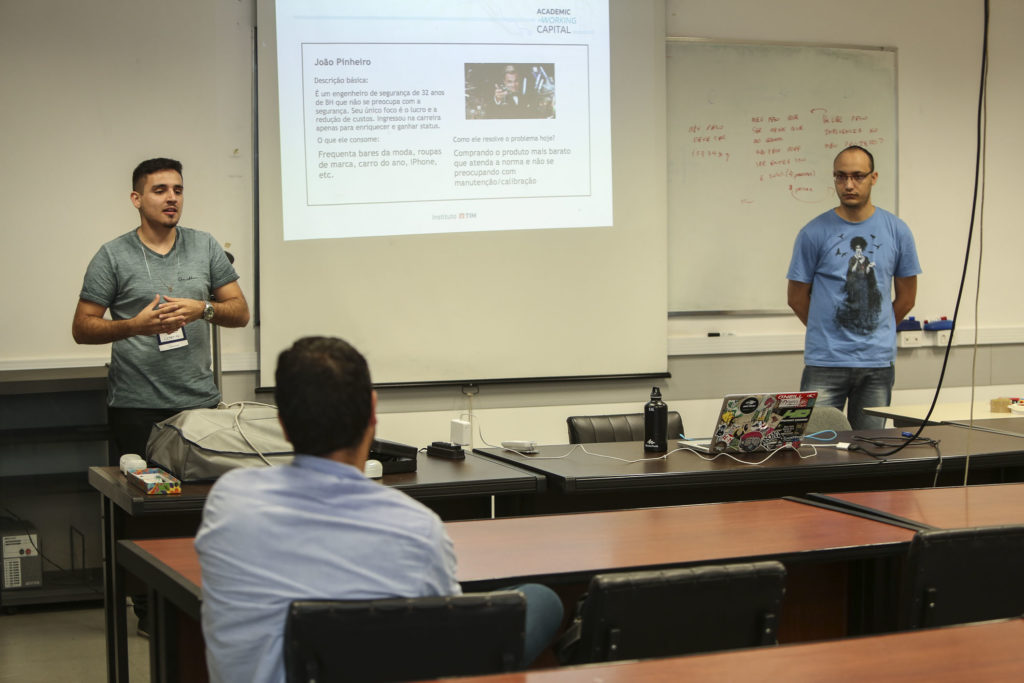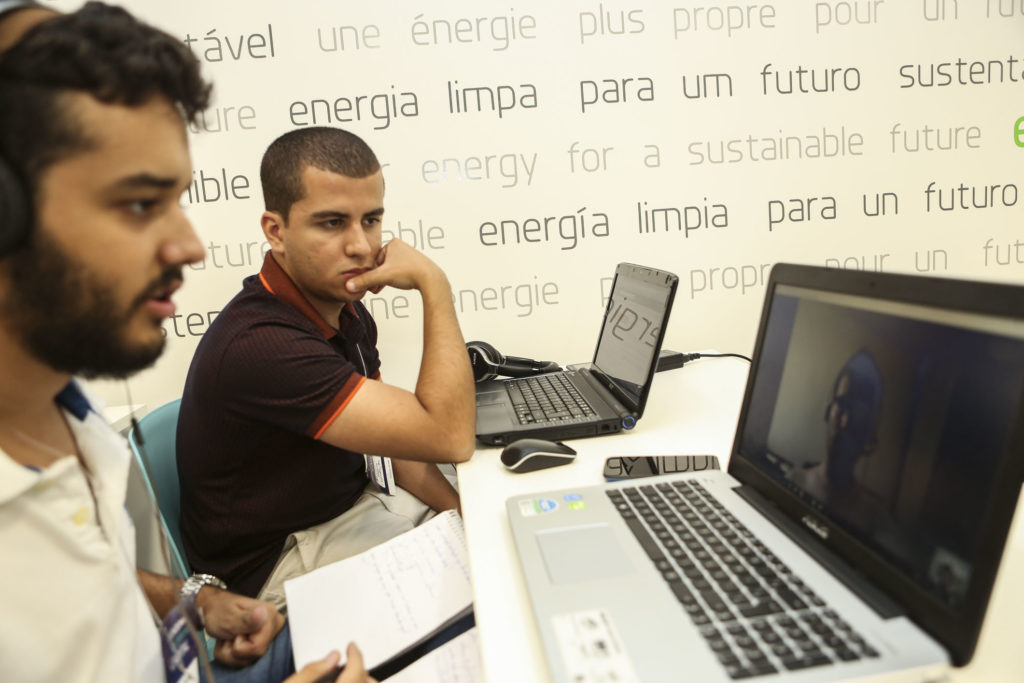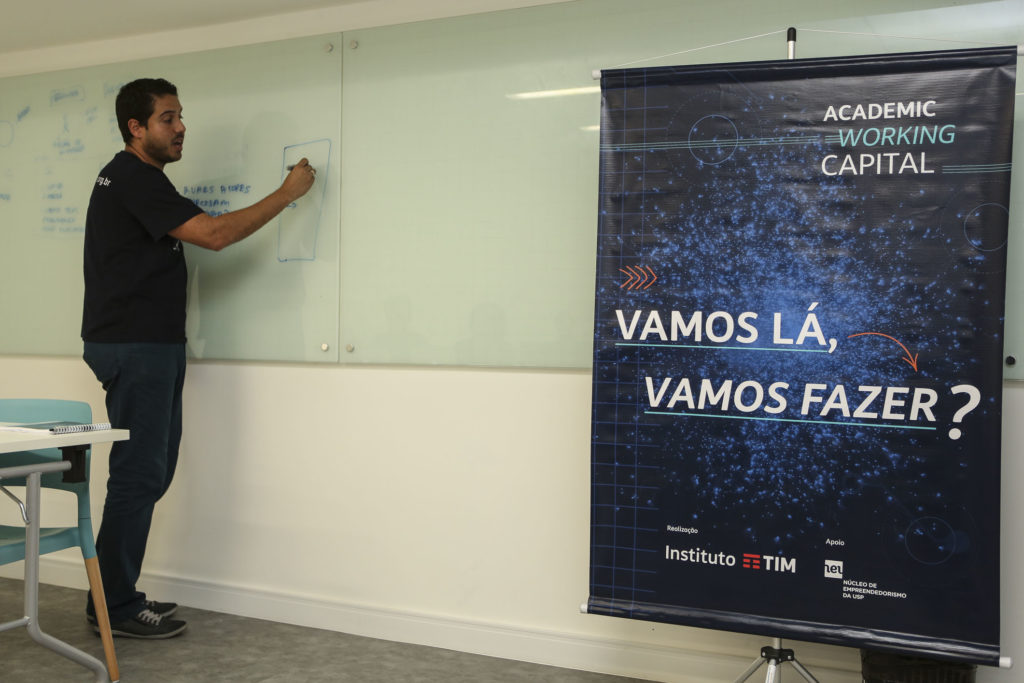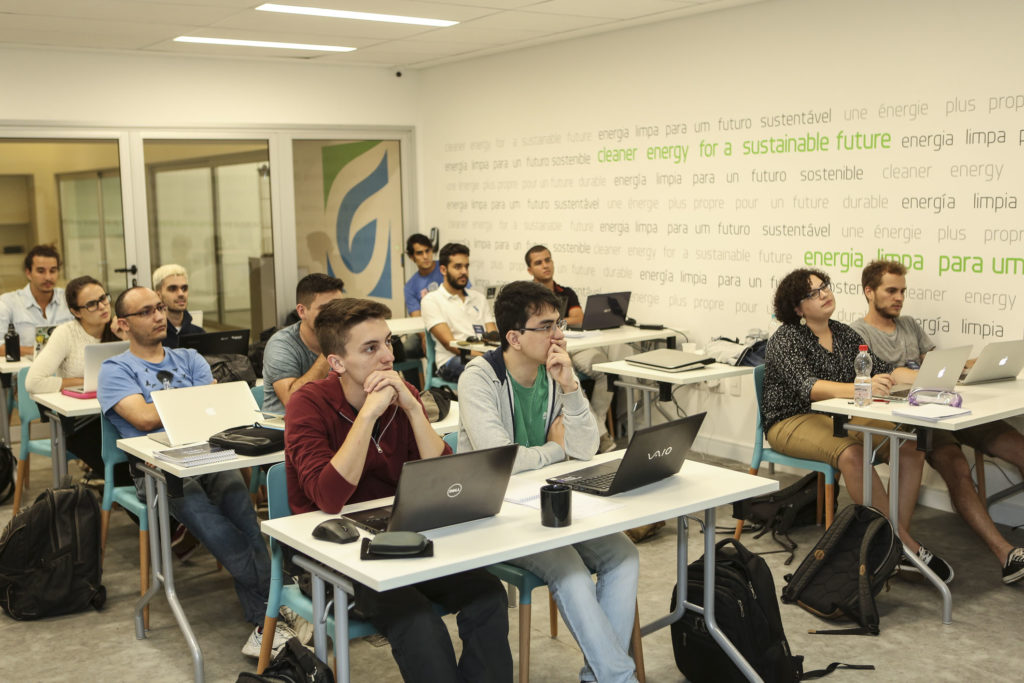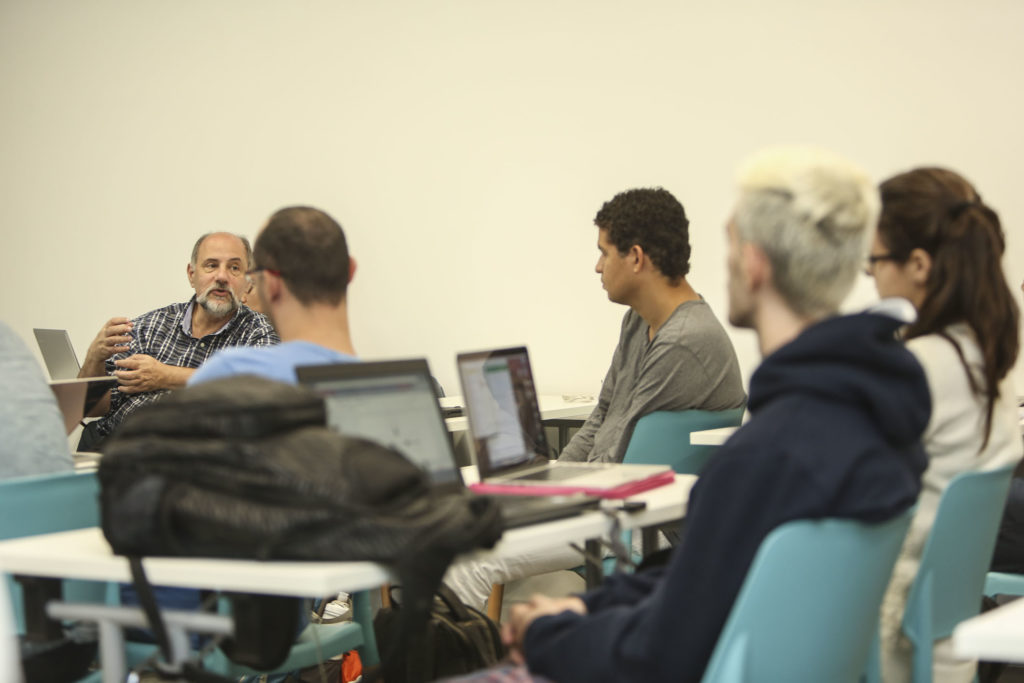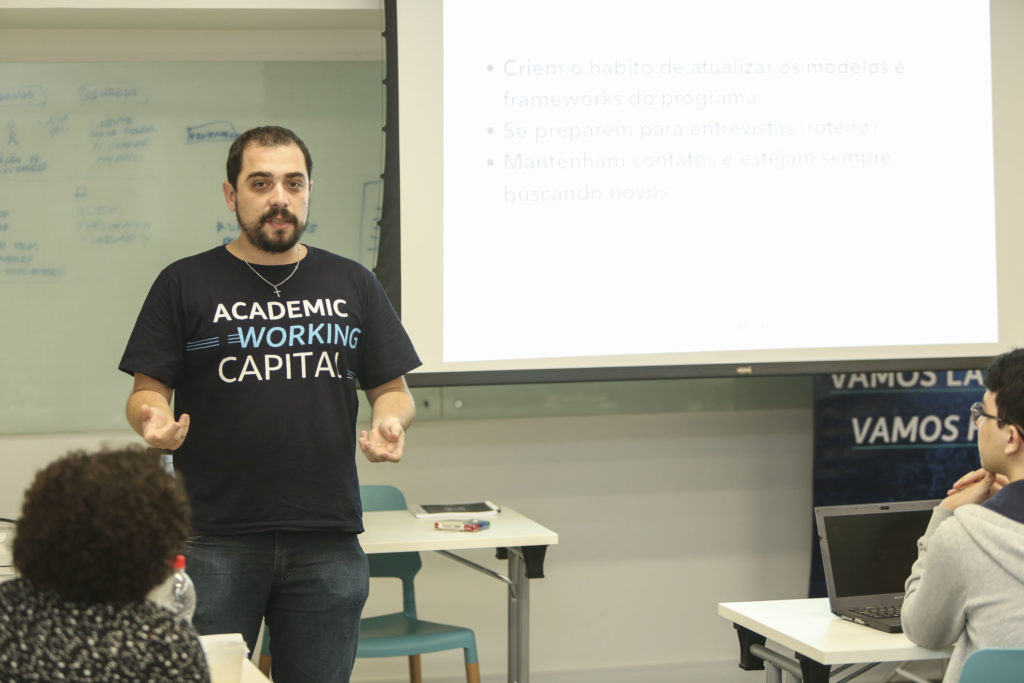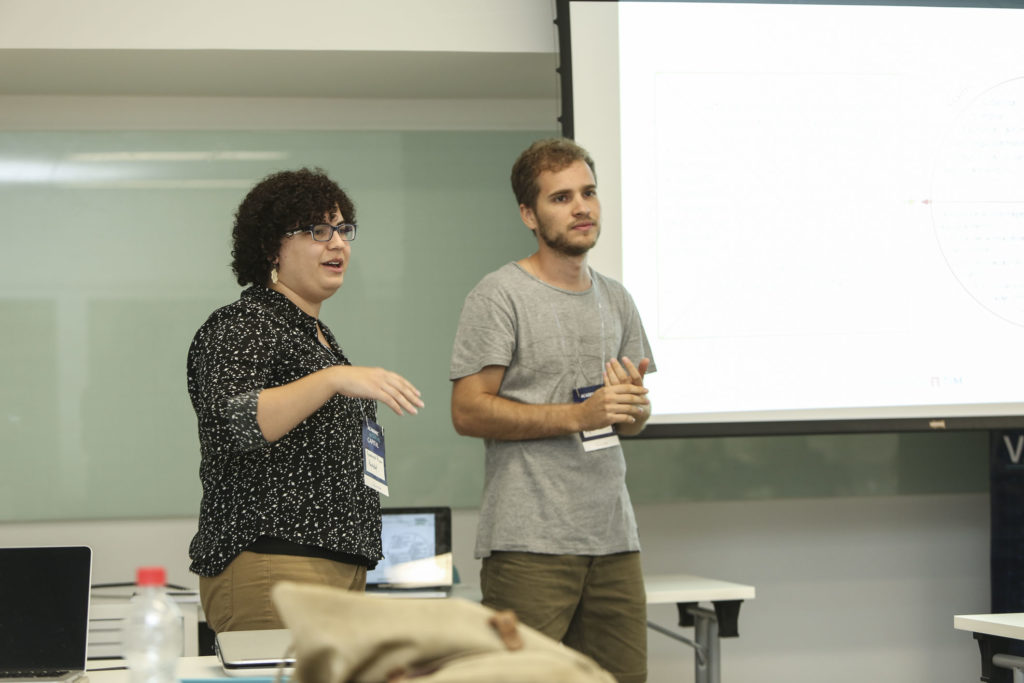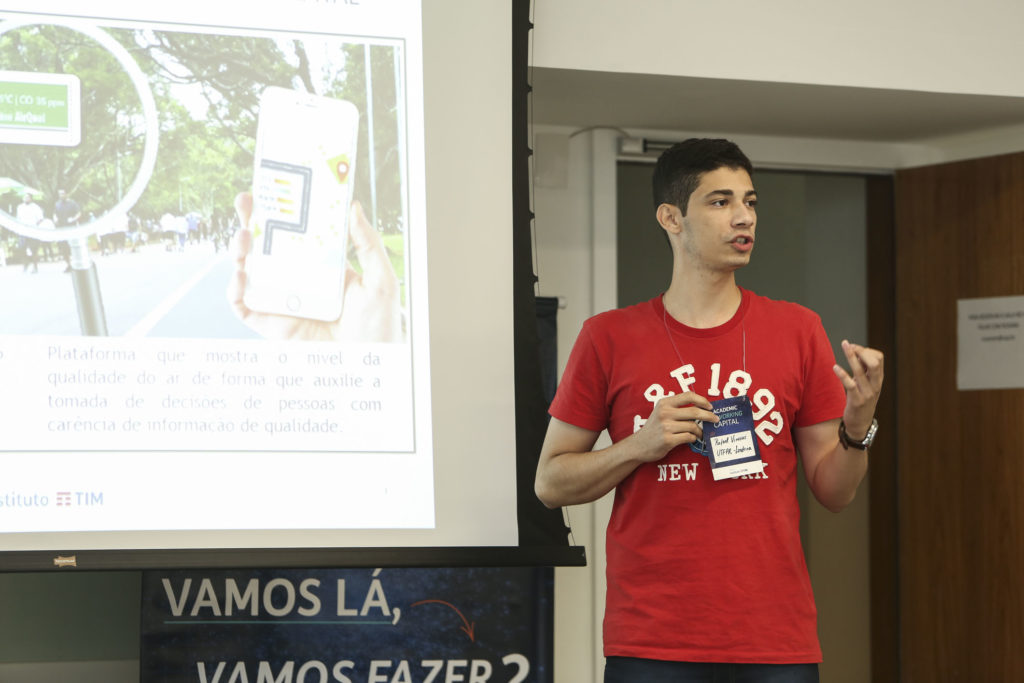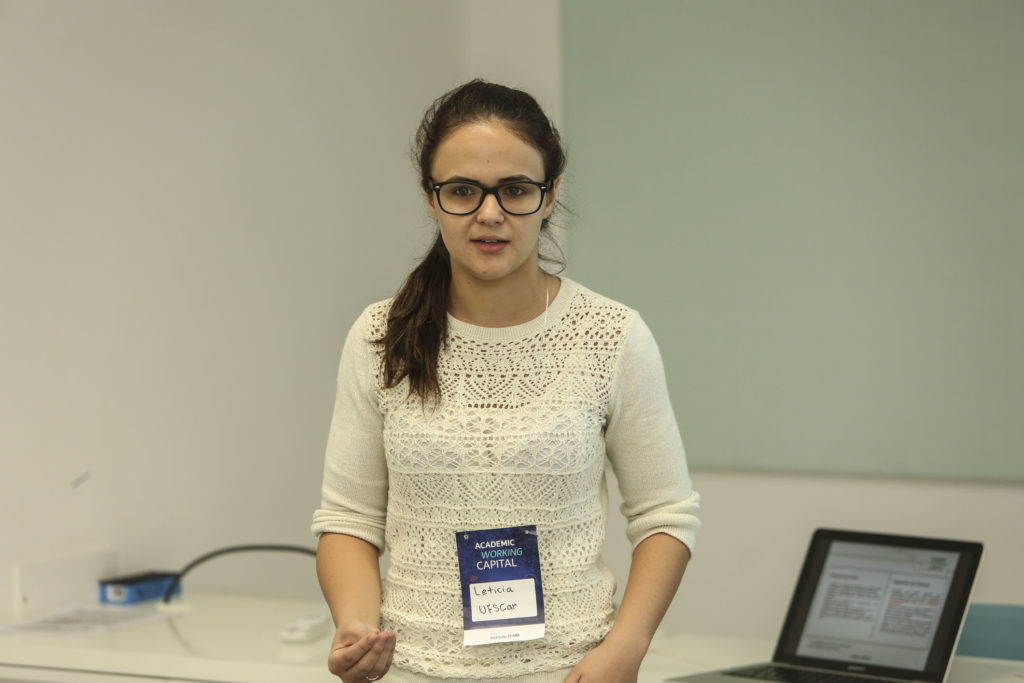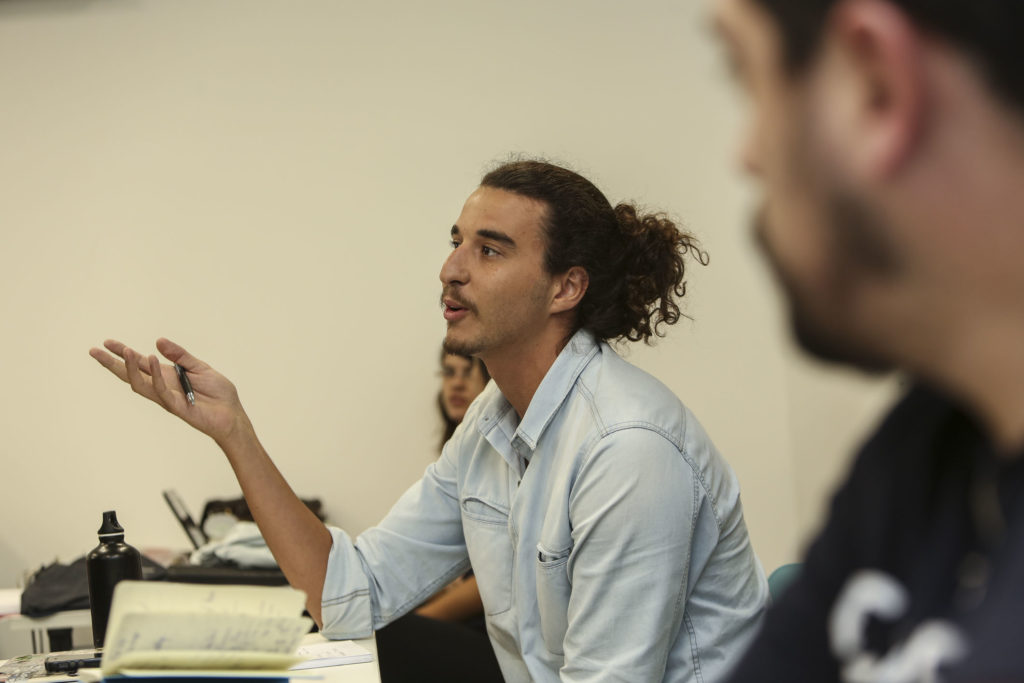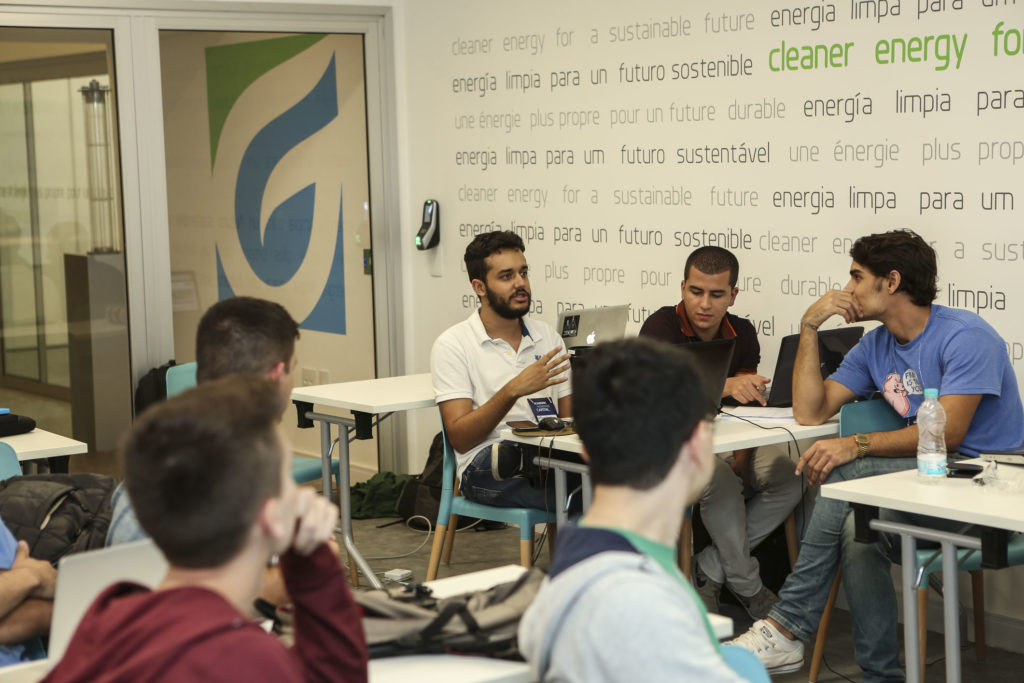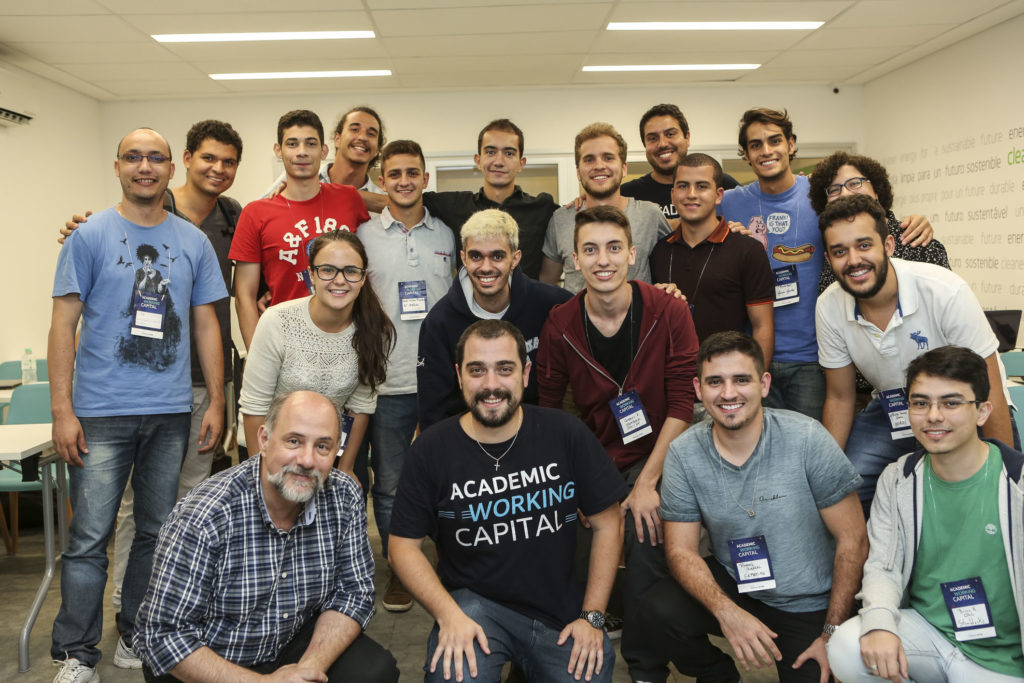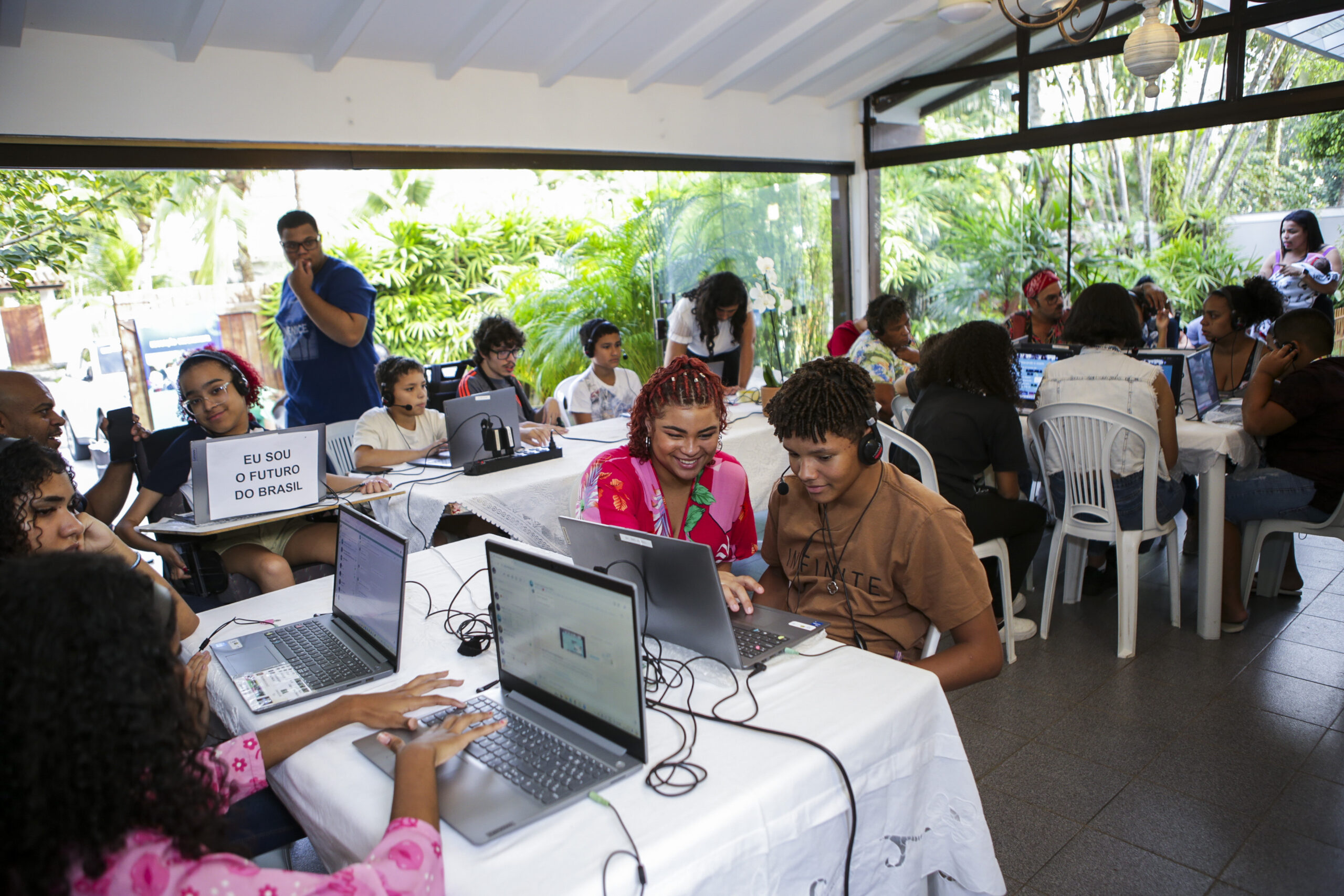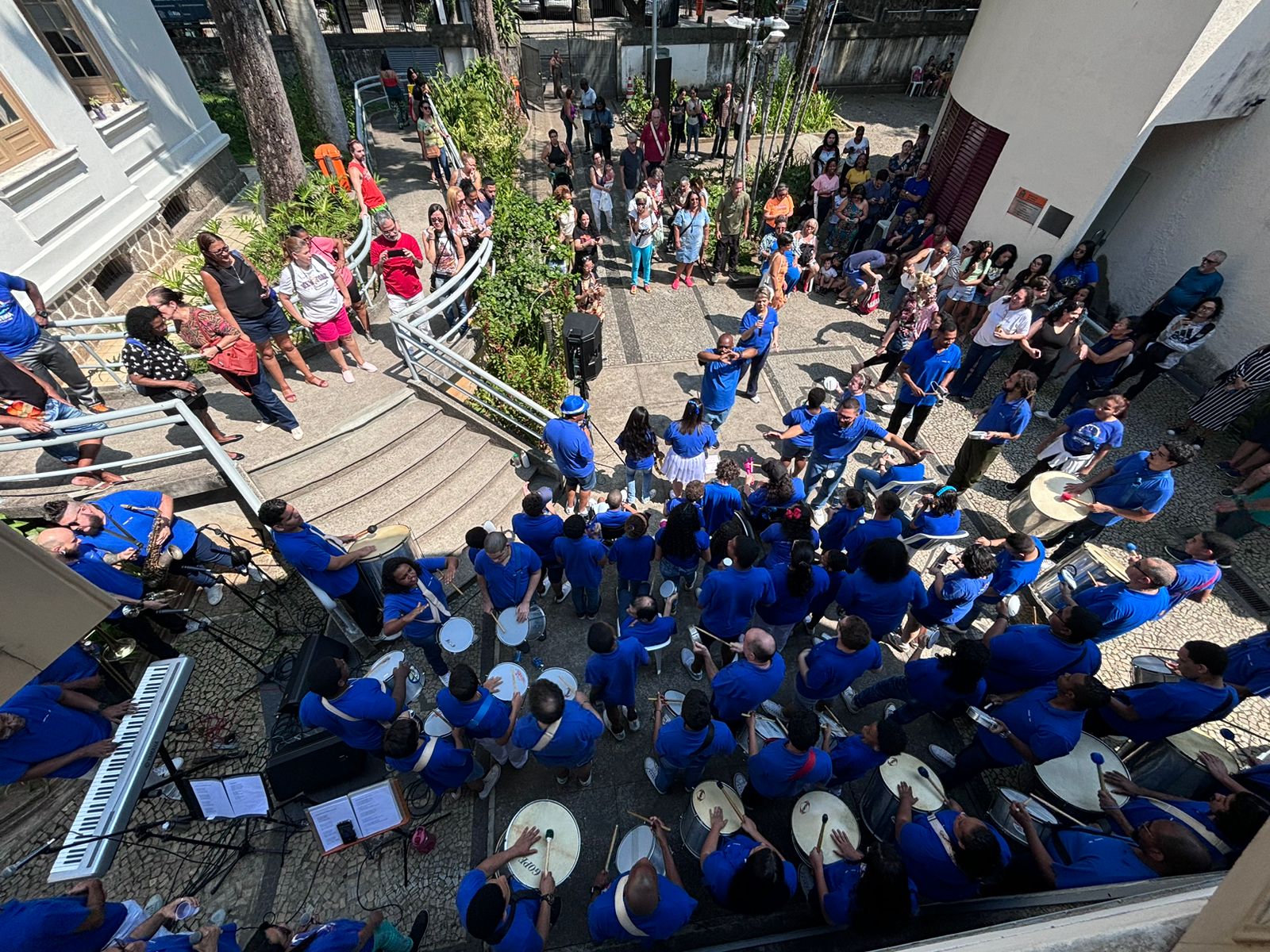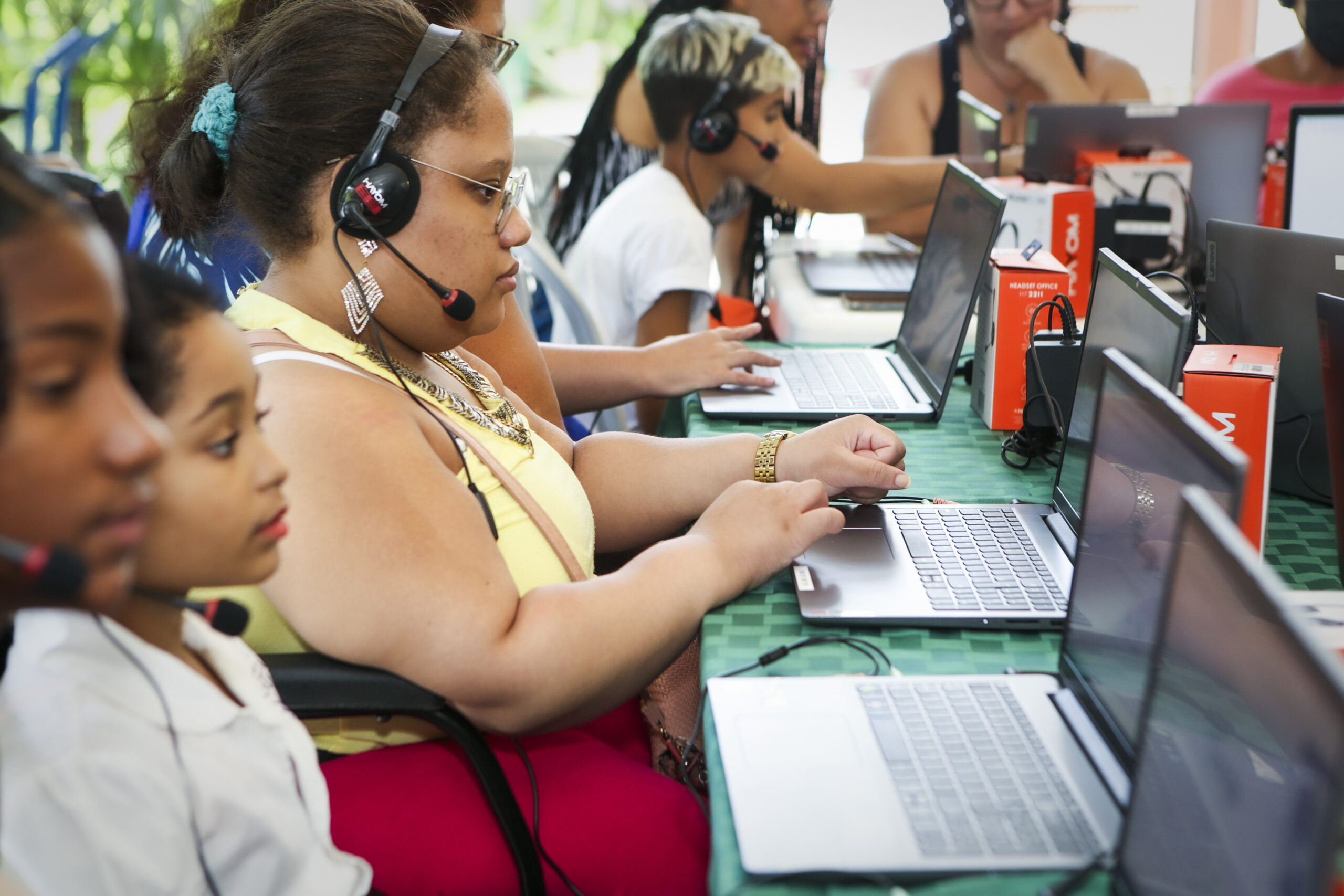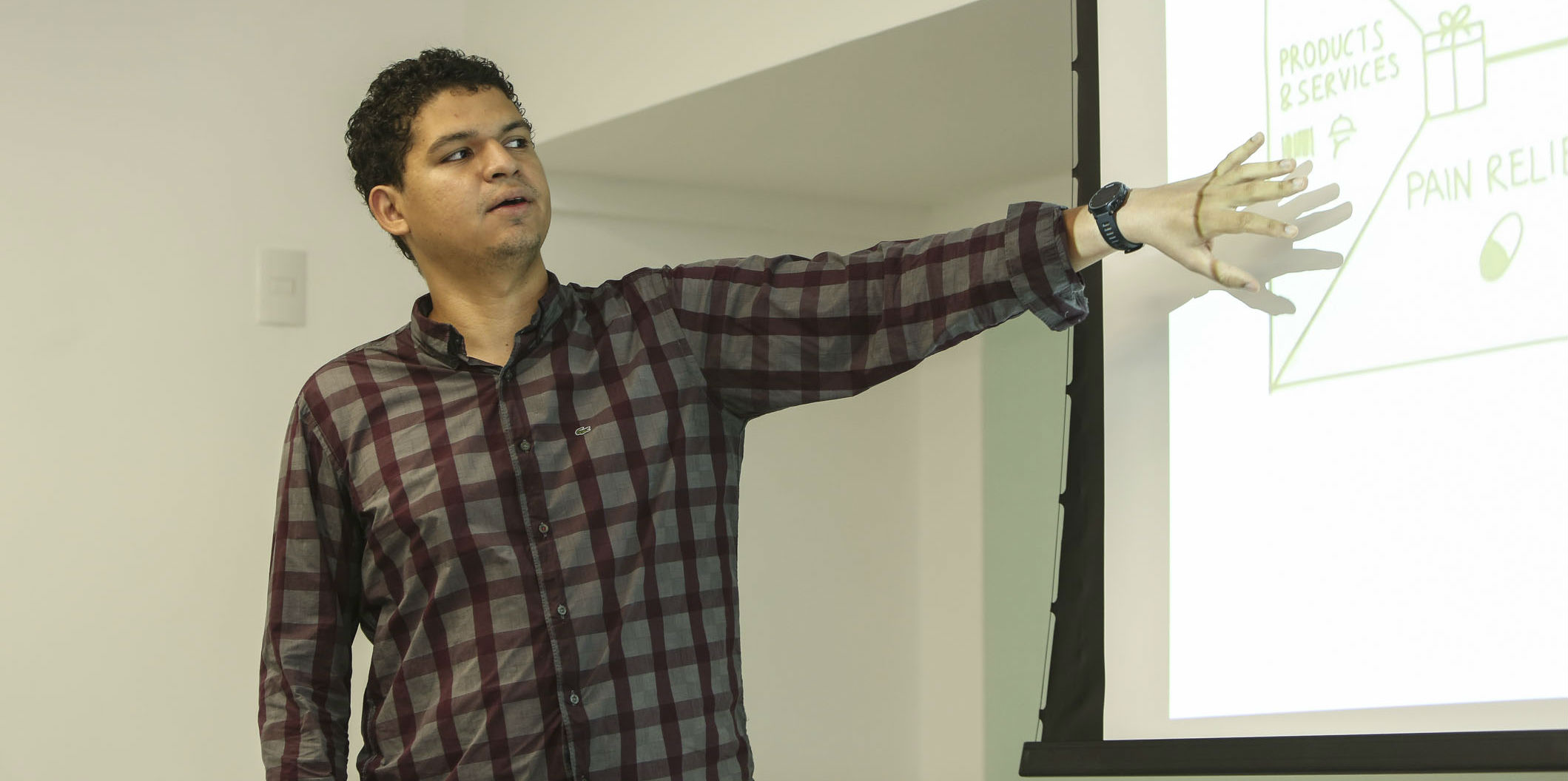
January 18th was the last day of Workshop I of the Academic Working Capital program – at the same time, it was only the beginning of an intense work that the participants will carry out in 2017. In the first activity of the day, the groups were divided into two rooms of the building of Mechanical and Naval Engineering of the Polytechnic School of the University of São Paulo (Poli-USP) to present their projects, using as base the slide deck built during the workshop. Students explained their value propositions, customer segments and personas, users’ journeys and what they learned during this initial process.
Check out what happened during the first and the second day of Workshop I
The AWC team provided guidance for the groups to improve their presentations and projects and extra tips to conduct the interviews, explaining how they can be used to address the CSD matrix assumptions and doubts. Then, the groups made the last interviews scheduled during the workshop (face-to-face, via Skype or by phone) and started contacting other potential clients and partners. The goal is that in the next three months they can conduct 100 interviews. Upon returning, students were able to update their slide decks based on the team’s feedback and interview results.
Miguel Chaves, partner in the design and innovation consultancy CAOS Focado, talked with the participants to review the main tools presented during the workshop: Value Proposition Canvas, CSD matrix, personas and user’s journey. Through a scheme drawn on the blackboard, he showed how one tool is connected to another and that they work in a cycle. “That’s the way you’re going to work all year long. This is scientific method. You will keep working, researching, interviewing, evaluating until you know if what you have is a certainty”, he said.
Mechatronics engineer and AWC coordinator Diogo Dutra recalled important lessons learned from the workshop and explained how the workflow will be in the coming months and the expectations for the groups. “The most important in this process are the interviews. Do not make abrupt decisions based on one interview only”, he advised. Until the first Online Workshop, on April 29th, students will continue the interviews and update of the slide deck and participate in follow-up meetings with the AWC team. “It’s you who will become an expert in the customer and the value proposition. We will ensure that you are talking to the right people, making the right decisions and evolving in this learning cycle”, added Diogo.
After Miguel explained how the financial support provided by the program works, each group had 10 minutes to make a new presentation of their updated slide deck. Diogo, Miguel, Marcos Barretto, academic coordinator of AWC, and members of the program team Artur Vilas Boas and André Dib took turns to comment on the presentations.
In the end, the students shared their impressions about Workshop I. “You instigated us, made us think not only about technology, but on how we are going to impact people’s lives”, commented Rafael Cabral Pinto, a student of Mechatronics Engineering at the Federal Center of Technological Education of Minas Gerais (CEFET-MG). Gabriel Ribeiro Reis, a student of Mechatronics Engineering at the University of Sao Paulo, highlighted the fact that the AWC team members have expertise in different areas (engineering, business administration and communication), which contributes to the development of different aspects of the project.
